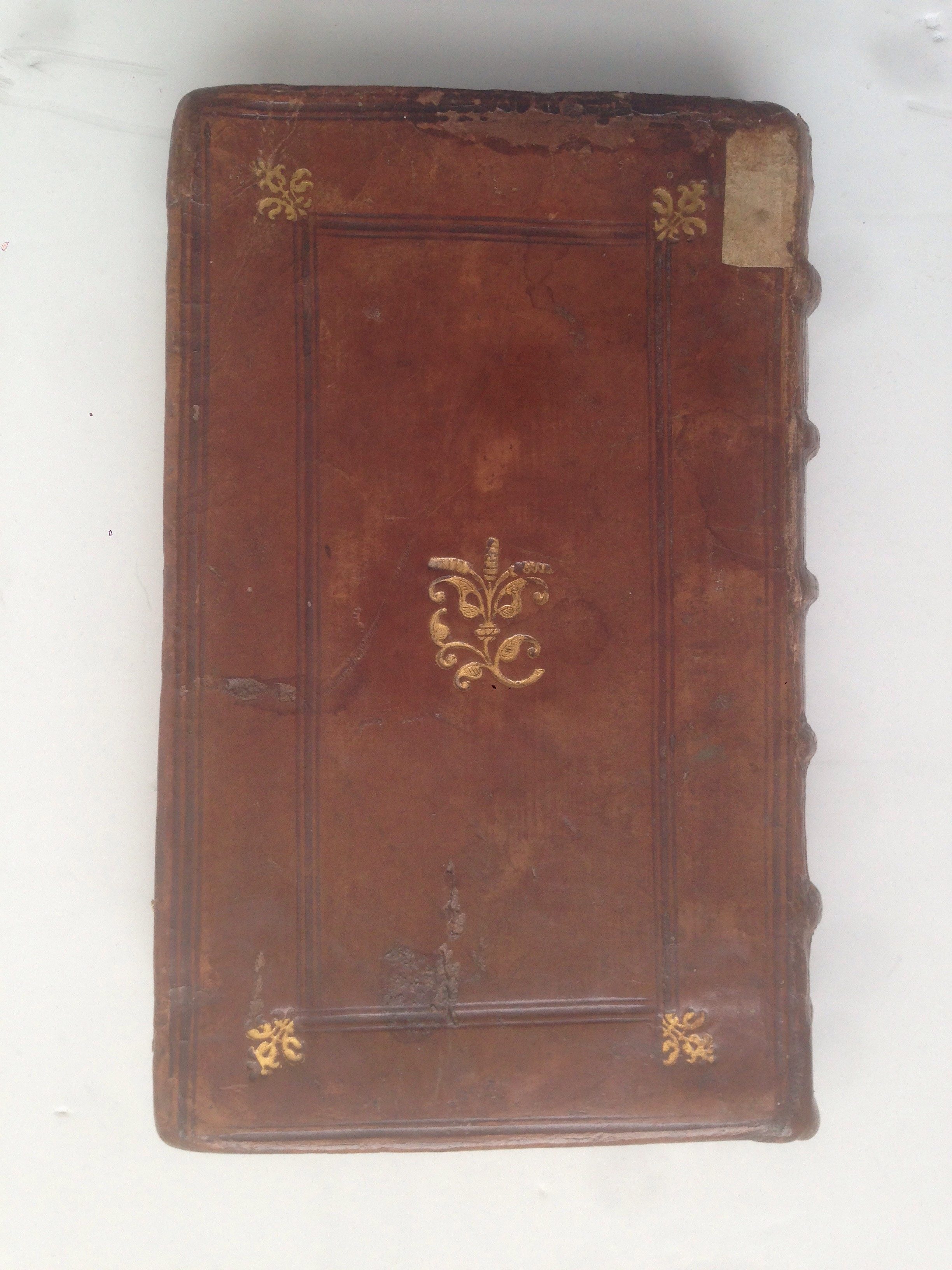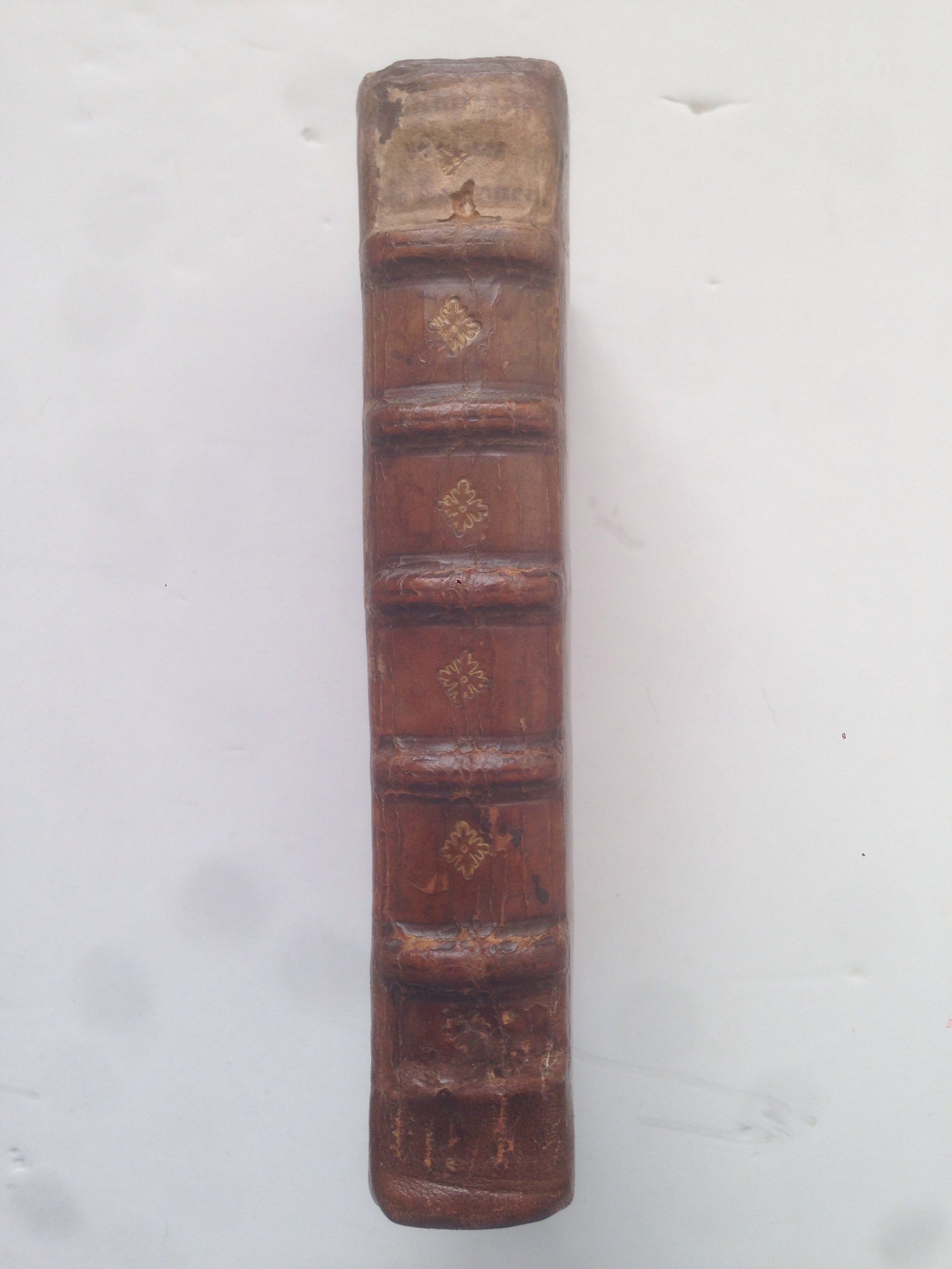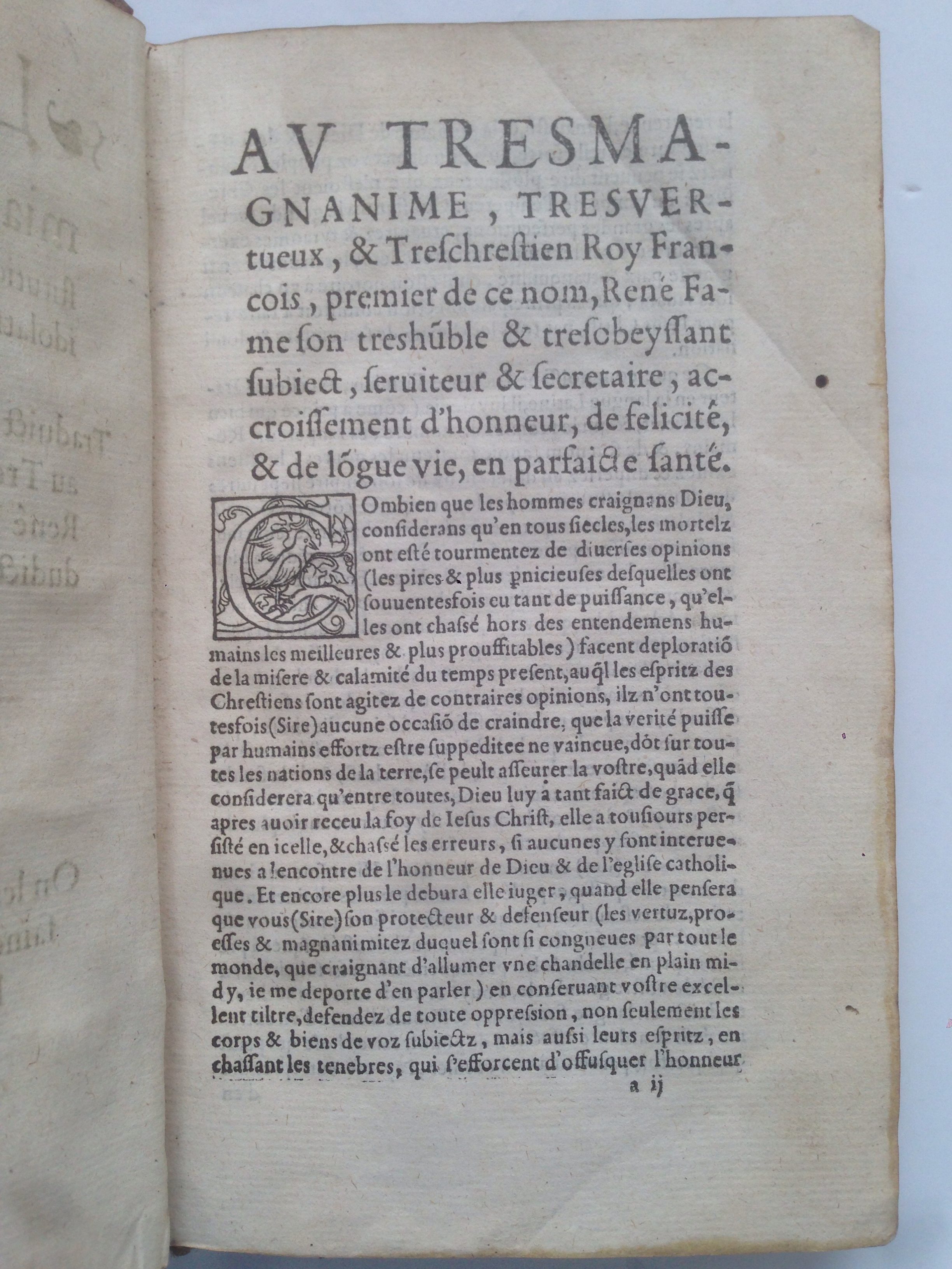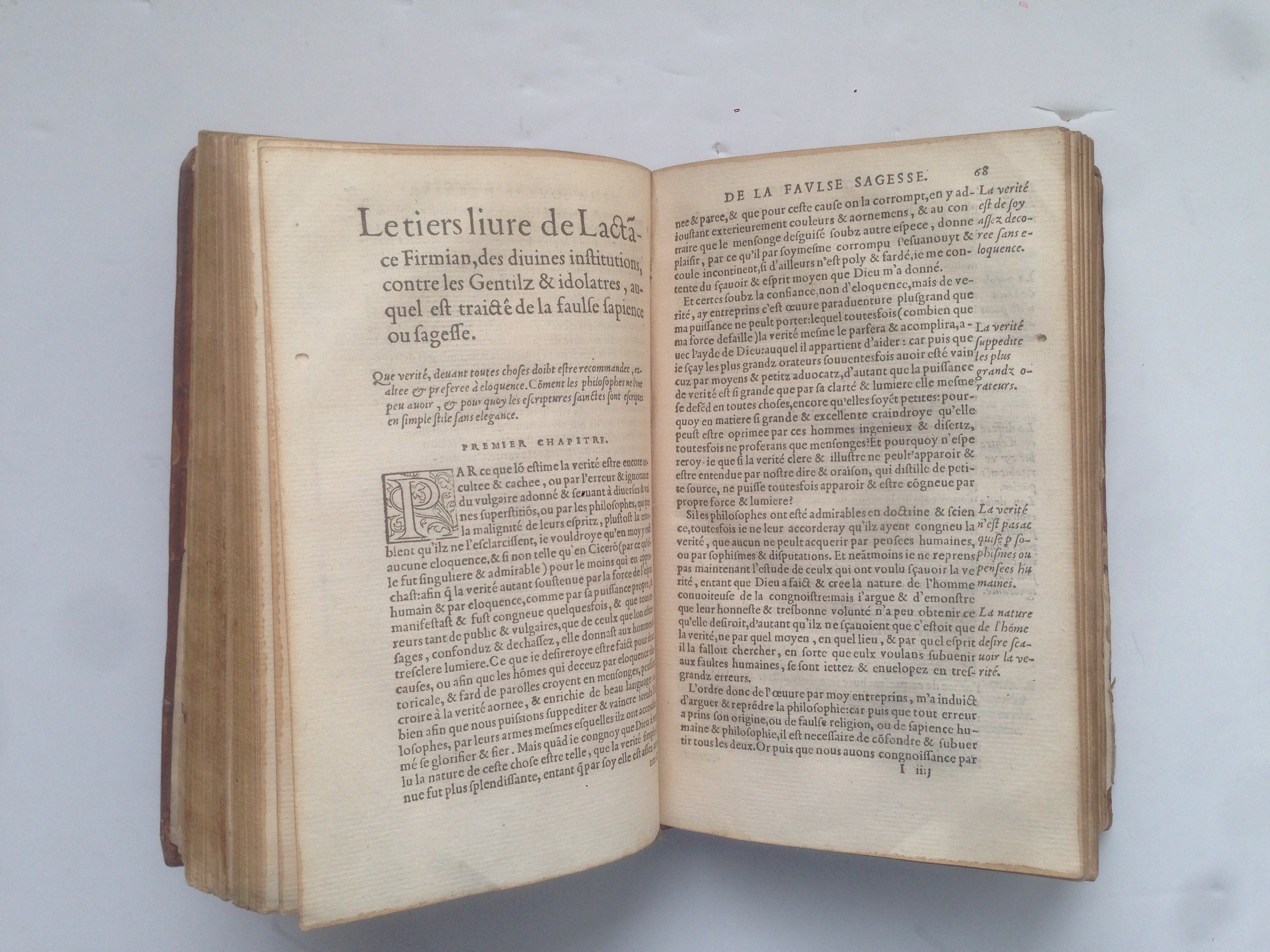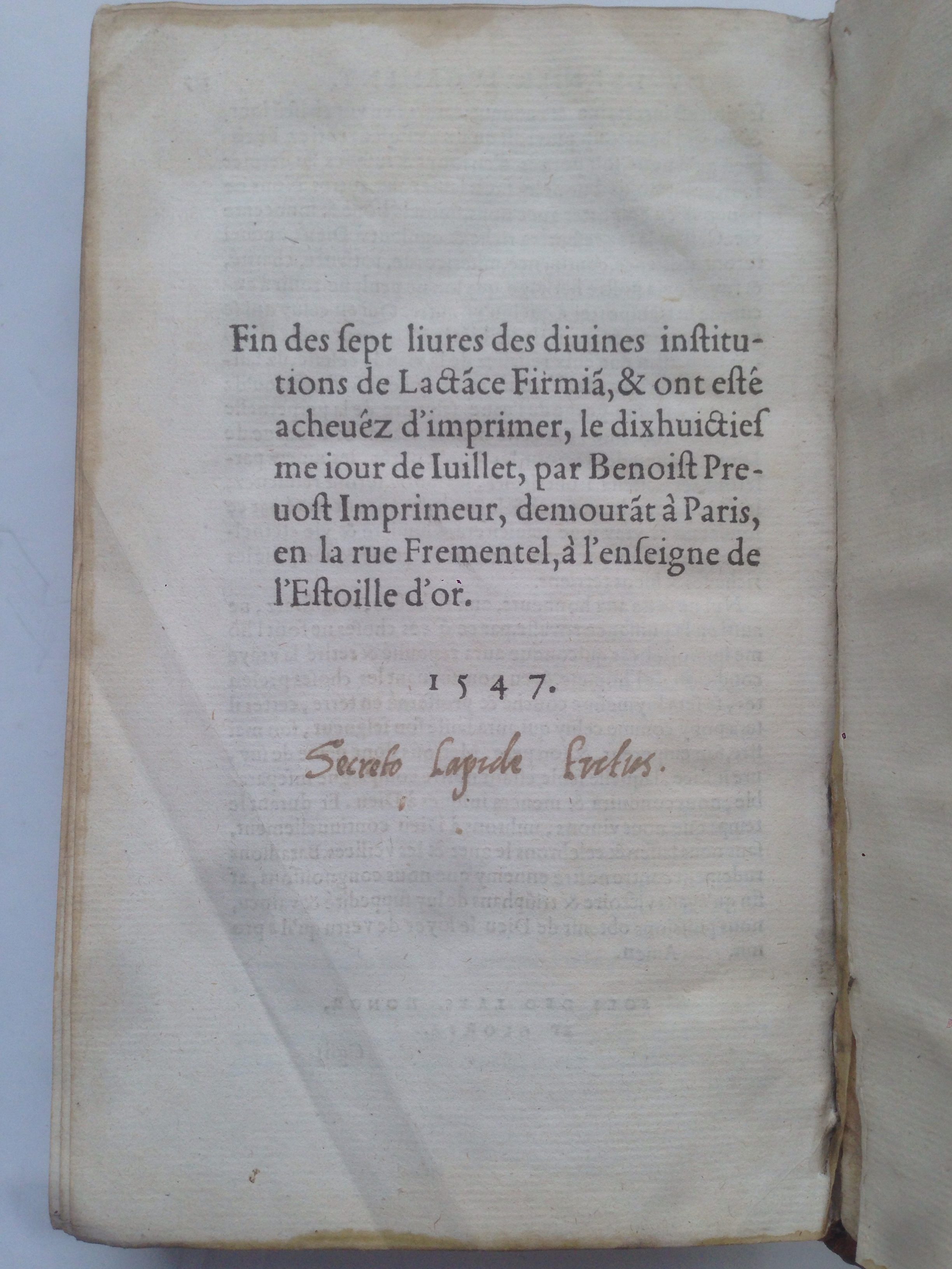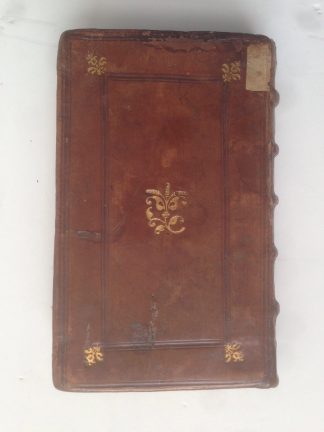LACTANTIUS, Firmanus
Des divines institutions, contre les gentilz & idolatres
Paris, Benoist Prevost, par Estienne Rosset sur le pont sainct Michel, a l’enseigne de la Rose blanche, 1547£3,500.00
8vo. ff. [xvi] 235 [i]. Roman letter side notes in Italic. Floraited woodcut initials, purchase note of ‘Martin du Rivaige’ on pastedown dated 1584, his autograph on fly, repeated on rear fly, early autograph of ‘Jean de Tieulain d’Arras’ beneath, ‘Joanis Atrebas’ on rear pastedown, ‘Principe de Belgiojoso’ at head of title in later hand. Light age yellowing, small single worm hole through outer blank margin of first half of work just toughing a few side-notes, the odd marginal spot or mark. A very good, clean copy in contemporary French calf covers triple blind ruled to a panel design, fleurons gilt to corners, large fleuron gilt to centres, spine with blind ruled raised bands, gilt fleurons to centres, repair to tail of spine, corners a little worn.
Rare early edition of this popular and important first French translation of the Divine Institutes by the French humanist and prolific translator René Fame, secretary to François Ist, first published in 1542. This edition was printed by Prevost and shared by at least three publishers including Cavellat. Lactantius was a rhetorician and early Christian apologist who lived in Roman North Africa. He was a pupil of the early Christian scholar Arnobius of Sicca (d. c. 330), travelled widely teaching in the cities of the Eastern Empire, and was appointed to a professorship in Nicomedia by the Emperor Diocletian, entering the imperial circle. There he presumably met the future Emperor Constantine, and himself became a convert to Christianity. He destroyed his earlier pagan writings, resigned his post and fled, fearing Diocletian’s purge of Christians and the first imperial edict against the religion in 303. Jerome records that he then lived in poverty, until Constantine came to power and recalled him to the imperial court in 311/13, appointing him tutor to his son Crispus. He must have died in the 320s. His works were rediscovered during the Renaissance, and his elaborate rhetorical Latin style proved immensely popular, earning him the title the “Christian Cicero” from humanists such as Pico della Mirandola.
The Divine Institutes is his magnum opus, written during his period of court exile. It contains seven lengthy treatises which set out a comprehensive survey of Christian theology, and build an argument intended to show the reasonableness and truth of Christianity and the futility of pagan beliefs. More importantly for the Renaissance and modern readers, Lactantius frequently quotes Classical sources in this work, and in fact this was the principal vehicle through which Renaissance readers came into contact with the Latin Classics. Lactantius includes substantial quotations from two lost works by Cicero, the Hortensius and Consolatio, and all of our modern reconstructions of those texts are based on his excerpts. In addition, he knew a complete copy of Cicero’s De Legibus, a text which now survives only in a fragmentary state, and his quotations add substantially to our knowledge of it. His frequent citation of sources also has importance for early Biblical scholarship, in that his fourth book includes some seventy-three quotations from the Old Latin Bible, the Latin version of the first few centuries of Christian history, which was replaced by Jerome’s Vulgate in the late fourth century, and does not survive anywhere as a complete text. This edition, as all early translations of his works, is rare.
Martin du Riviage is probably the Magistrate and minister general of the Treasury at Lille, a lawyer and brother in law of the City’s mayor who was in office between 1591 and 1625.
Graesse V p. 68. Not in BM STC Fr. C16th, or Brunet.In stock


